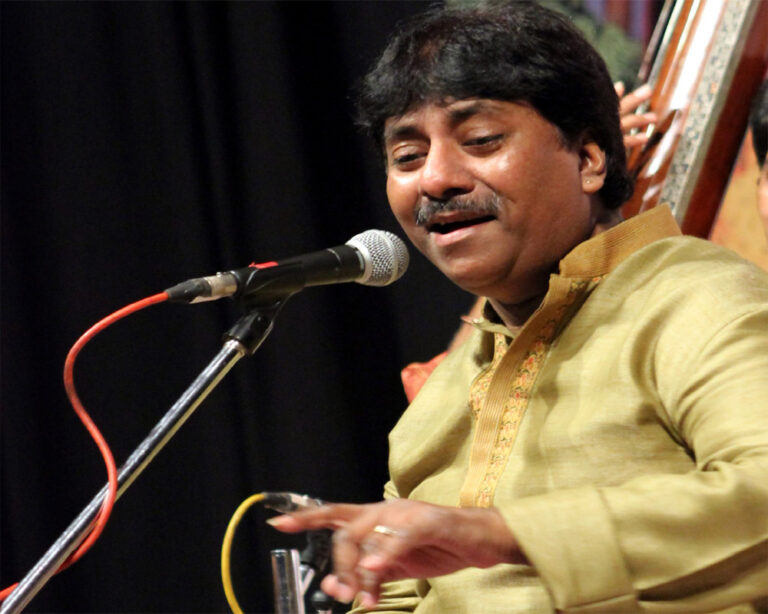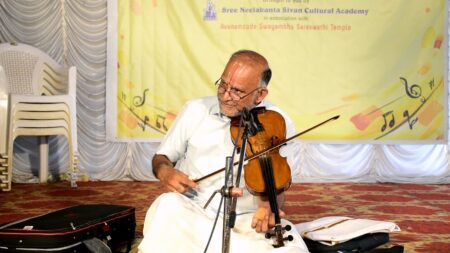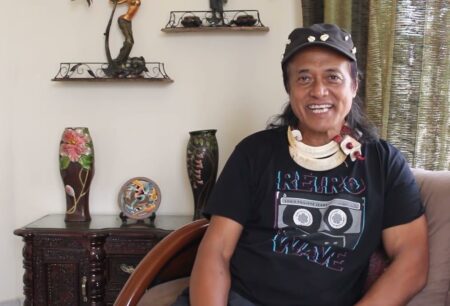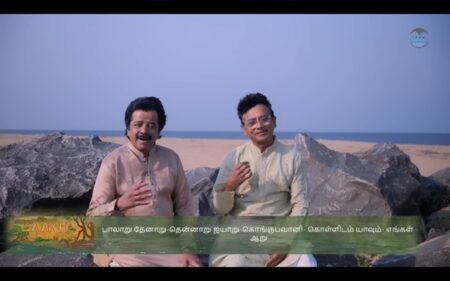Ustad Rashid Khan’s renderings stand out for the emotional overtones in his melodic elaboration
The world of Hindustani classical music mourns the loss of one of its brightest stars, Ustad Rashid Khan, who breathed his last after a valiant battle with prostate cancer. The 55-year-old maestro, who had been under the constant care of medical professionals, succumbed to the relentless grip of illness today evening in a Kolkata hospital, leaving behind a legacy that resonates through the ages.
Born in Badayun, Uttar Pradesh, Ustad Rashid Khan, nephew of the renowned Ustad Ghulam Mustafa Khan, embarked on his musical odyssey guided by his maternal grand-uncle, Ustad Nissar Hussain Khan (1909–1993). While his initial training in Mumbai came from his uncle Ghulam Mustafa Khan, it was under the mentorship of Nissar Hussain Khan that Rashid Khan received his foundational education, paving the way for a remarkable career.
Belonging to the illustrious Rampur Sahaswan Gharana and the great-grandson of its founder, Ustad Inayat Hussain Khan Saheb, Rashid Khan emerged as one of the foremost Hindustani classical vocalists in the country. At the tender age of 11, he marked his debut concert, and by 1978, at the age of 14, he graced the stage at an ITC concert in Delhi. His association with the ITC Sangeet Research Academy (SRA) in Calcutta began in April 1980, aligning him with a prestigious institution that further nurtured his prodigious talent.
Innovative style
The Rampur-Sahaswan gayaki, closely linked to the Gwalior gharana, became his signature style—characterized by medium-slow tempos, a resonant voice, and intricate rhythmic play. Beyond tradition, Rashid Khan’s experiments were nothing short of innovative. His swar-prayog set new trends, while his renditions of taranas, infused with emotional depth and khayal style, showcased his distinctive musical identity. Rashid Khan’s expertise in taans is believed to have originated from dedicated practice, focusing not only on scales but also on singing a single note for extended periods.
In an interview, he once remarked, “Bandish ka mazaa lene ke liye (to relish the composition’s beauty), I try to unfurl it. Musicologists make a keema of this trait of mine, but I cannot change. Bandish me rahna meri fitrat nahi (accepting bondage is not my cup of tea); it suffocates me; I like to be casual.”
A innovator in blending classical Hindustani music with diverse genres, Rashid Khan collaborated with Western instrumentalist Louis Banks and engaged in jugalbandis with sitarist Shahid Parvez, showcasing a versatility that expanded the horizons of his musical expression.
His mellifluous voice garnered millions of new admirers through his cinematic ventures, such as the poignant ‘Allah hi rahem’ in My Name Is Khan, Milon Ke Fasle in Ishqeria and the wildly popular ‘Aaoge jab tum o saajna’ from Jab We Met.
The youngest male classical vocalist to receive a Padma Shri in 2006 at the age of 38, and later the Padmabhushan award in 2022, Rashid Khan’s departure signifies the loss not only of a maestro but a pioneer in Hindustani music. His legacy endures through his recordings, compositions, and the profound influence he leaves on aspiring musicians and devoted listeners globally.




